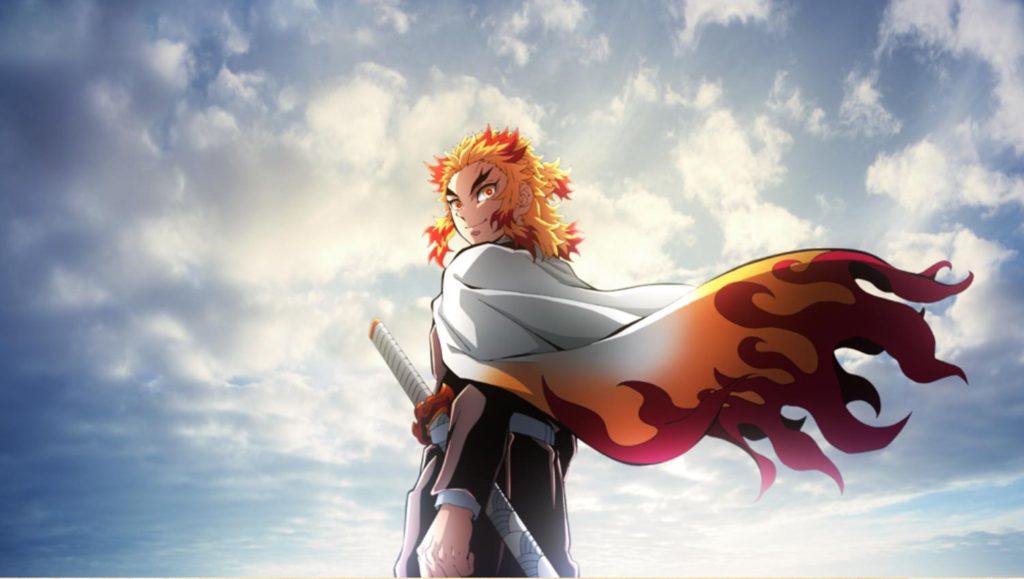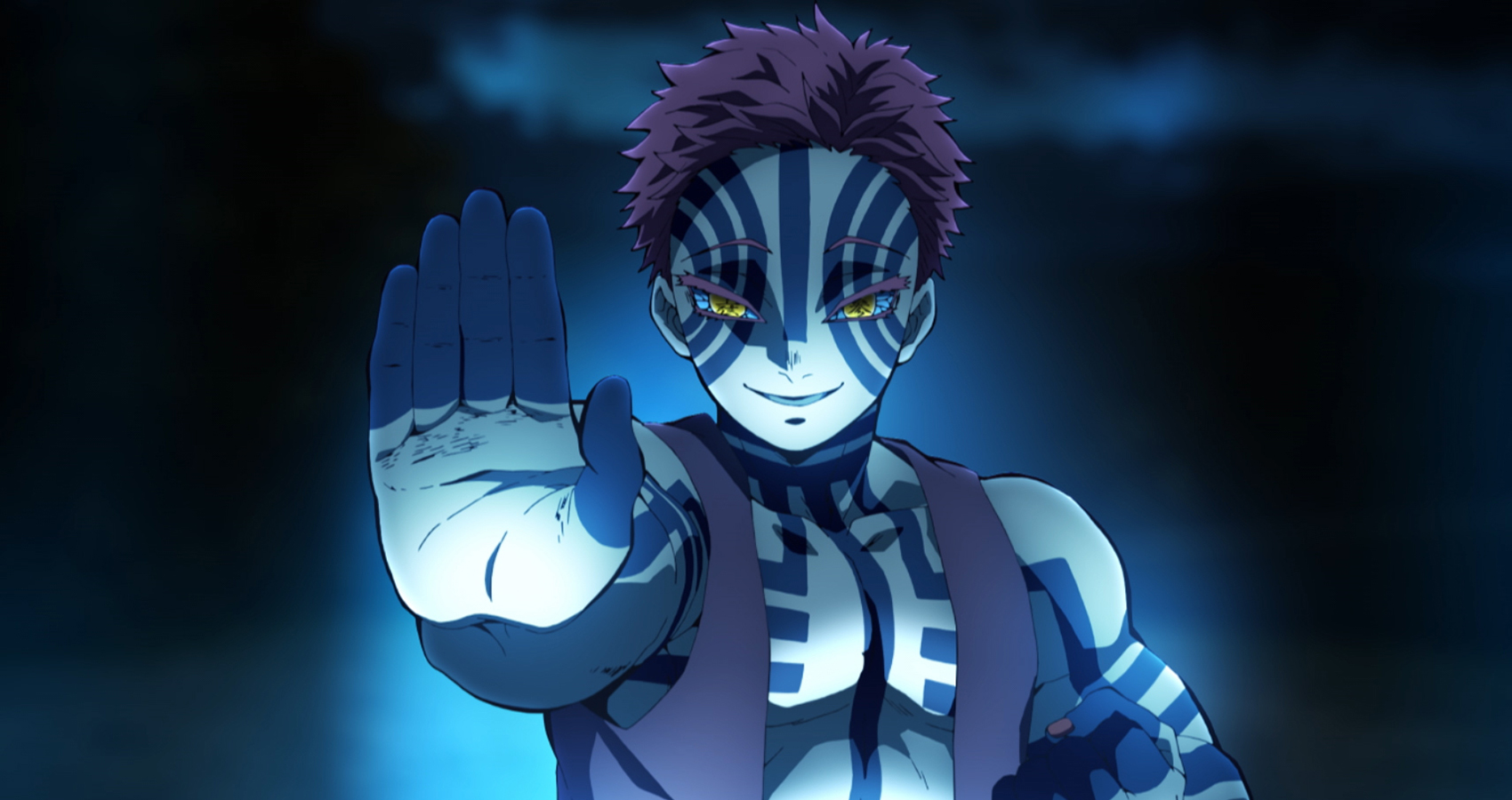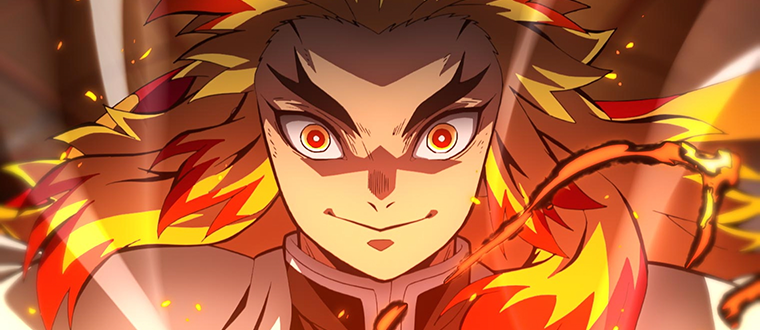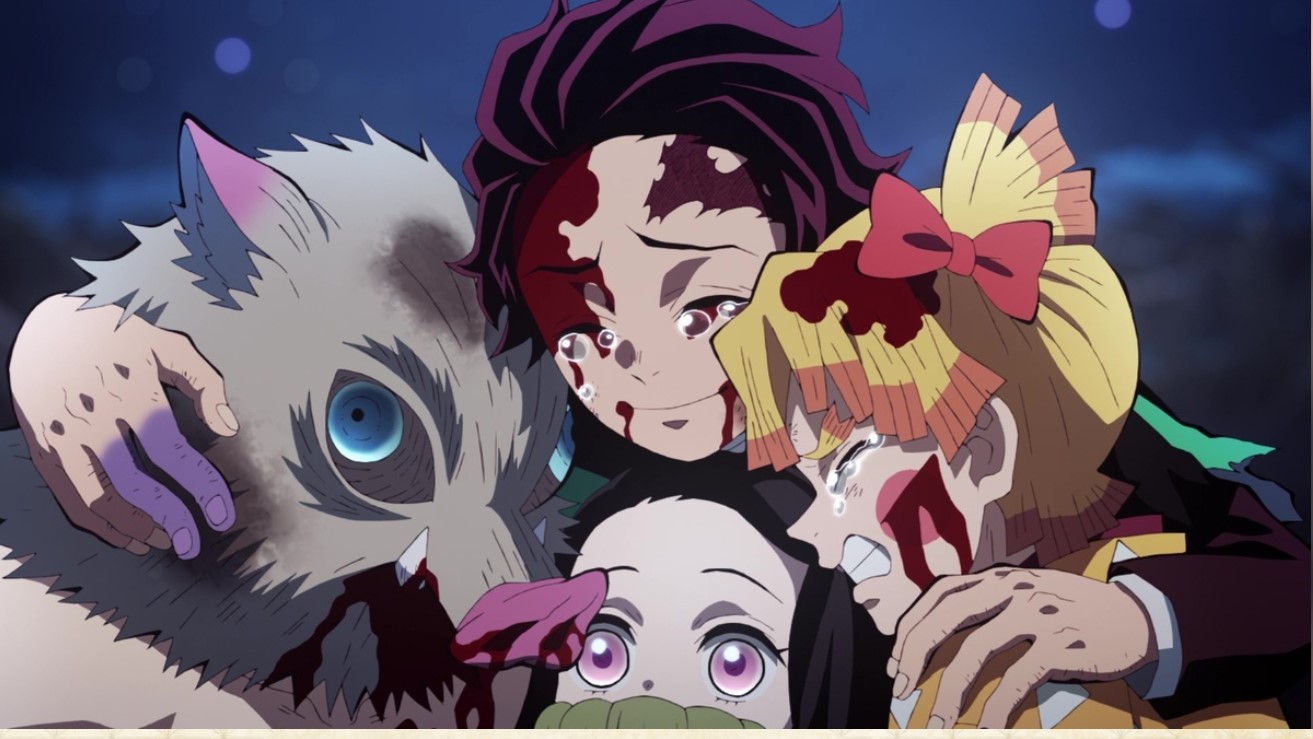
Provided by Aniplex
Demon Slayer celebrates the impermanence of humanity
Most people have been in a hospital room at some point in their lives. Part of the human condition is being forced to reckon with how ultimately fragile we are. But weirdly, I can’t be in a hospital room anymore without feeling physically sick. I want to vomit, to run away, to never smell that too-clean scent or see those shiny, monochromatic floors again. It takes all my willpower to try to be normal in these situations, few and far between as they may be. I guess part of the issue is that these visits have been more frequent for me in the past five or so years than I think they are for most folks.
My parents are old by most people’s standards. I was born when my mom was 41. Because of this, my extended family – aunts, uncles, cousins – are mostly significantly older than me. I’ve spent my twenties watching what aging has done to some of the people I care about most. Cancer has ravaged my family, affecting both my parents and two of my aunts. They’ve all managed to pull through and stay in remission, but not without a cost. My whole life changed completely again when my father had a stroke in the summer of 2019 that left the right side of his body paralyzed. I spent months commuting over an hour to a hospital every day after work to visit him, my body strung so tightly from financial stress that I didn’t even register how ill being there had begun to make me feel.
My mother, who spent my whole life unable to sit still, doing high kicks and old high school cheerleading routines in our kitchen, now has days where she can’t walk. She’ll feel sick from her targeted cancer therapy medication, or her knees, damaged from years of high impact activity, will ache to the point where she doesn’t want to stand. These days break both of our hearts.
How do you reconcile the most active, fit person you know declining because of such a natural process as aging? Especially when you, like me, are someone who could never hope to match that level of athleticism or pure energy? If this is what my parents have been dealing with, what will my sixties hold?
This is the fear that keeps me up at night, that gnaws at the back of my mind as I try to get my physical health to a better place in my late twenties. If I can’t make my body stronger before I turn thirty, how will it be able to hold up? I don’t want to see any more hospital rooms, don’t want to be in them. Though they’re supposed to be sites of healing, for me all they do is enforce how weak I am. Too weak to save my loved ones from this technically natural pain. Too weak to save myself.

Demon Slayer: Kimetsu No Yaiba is not, explicitly, about any of this. But, at the same time, it’s completely about this. In this version of Taisho era Japan, demons are beingss that were formerly humans themselves, turned into supernatural creatures through the power of one man’s blood. Their transformations grant them superhuman strength, speed, healing ability, and even magic powers if they’re strong enough, but it comes at the cost of having to eat human flesh. The more humans a demon eats, the more powerful it can become.
Demon Slayer is extremely interested in exploring what would cause a person to become a demon or a demon slayer, and finding empathy, if not forgiveness, within those situations. The latter is usually based in demon-related trauma from the past, though there are some variations on that. The former tends to run a much larger gambit of reasoning, though more often than not it comes down to pure self preservation. Several demons, even some of the good ones like Yushiro, are revealed to have made the change to avoid death from injuries or illnesses they’d have no chance against as humans.
Becoming a demon is often framed as a way to preserve someone, to save them from their own human frailty. In Mugen Train, the series’ big movie from last year, one of the characters (the Hashira Rengoku) is presented with prospective demonhood in this exact way.

In the movie, Rengoku demonstrates his incredibly skilled swordsmanship against a powerful, upper rank demon who loves and has mastered martial arts. Seeing Rengoku fight, the demon immediately offers to bring him over to the dark side as a way to preserve the hashira’s special skills. He repeatedly tells Rengoku how special he is and reminds him that his body cannot possibly hope to compete with that of a demon.
Watching this scene, I knew, deep down, that I would have accepted. My body is nothing exceptional, and my combat skills are similarly lacking, but if presented with the chance to preserve myself as I am now, still relatively strong and able, forever, I would do it. There aren’t many prices I wouldn’t pay to guarantee I’ll never have to fall apart the way my parents have.
But Rengoku is more measured, more selfless, and he has fully embraced the fact that to be human is to be impermanent. To be human is to crumble, to crack, to decay. We inherently have a time limit, and each phase of our lives changes us in terms of what we’re able to do. Rengoku sees the beauty in that. He sees value in making time precious and in doing the very best you can with whatever hand you’ve been dealt. Our condition is to die, we can’t make that anyone else’s problem.

And that’s the main thing about becoming a demon, right? Ultimately you get to escape your mortality, but someone else has to pay for it with their life. There’s not really a sacrifice on the demon’s part, other than having to avoid sunlight, but their victims are the ones putting up something of value. The evil of how demons in Demon Slayer survive and grow more powerful is not in the actual act of eating human flesh, but in the intention of robbing someone of their life to ensure you can cheat that same fate.
Death, frailty, and mortality as a whole are truly the great equalizers among us. Yes, there are different levels of access to care, quality of life, and so on, but ultimately all of us are going to die. If you break someone’s spine, rich or poor, they likely will never move the same way again. Just as demons in Demon Slayer try to cheat that at others’ expense, real life ghouls like Cheney and McConnell will do their best to fuck the rest of us over while they get the best care money can provide. But one day, they’ll be in the ground just like the rest of us.

That’s what makes humanity special. It’s not some inherent spark of divinity or light. It’s simply that no matter how different we are, when it comes to the end, we will all be the same and we’re all bound to the knowledge that we’re living on a time limit. That limit, though terrifying, is ultimately what makes life worth living.
I look at my hands, and I’m terrified of the day when they will start shaking as a side effect of my antidepressants. At the end of the month I’m undergoing genetic counseling to better understand my potential risk for cancer and other hereditary issues I may face when I’m older. At 27, with so many of the people I love declining around me, I can hear the clock ticking so, so loudly. But each second I get to spend with them, whether it’s for fun or for care, is meaningful because that clock is moving right along in the background. I can’t waste that time being scared. Instead, I’d rather make sure I’m living the kind of life where I too will have people I love around me when my health starts to wane.
If you like what we do here at Uppercut, consider supporting us on Patreon. Supporters at the $5+ tiers get access to written content early.






1 thought on “Demon Slayer celebrates the impermanence of humanity”